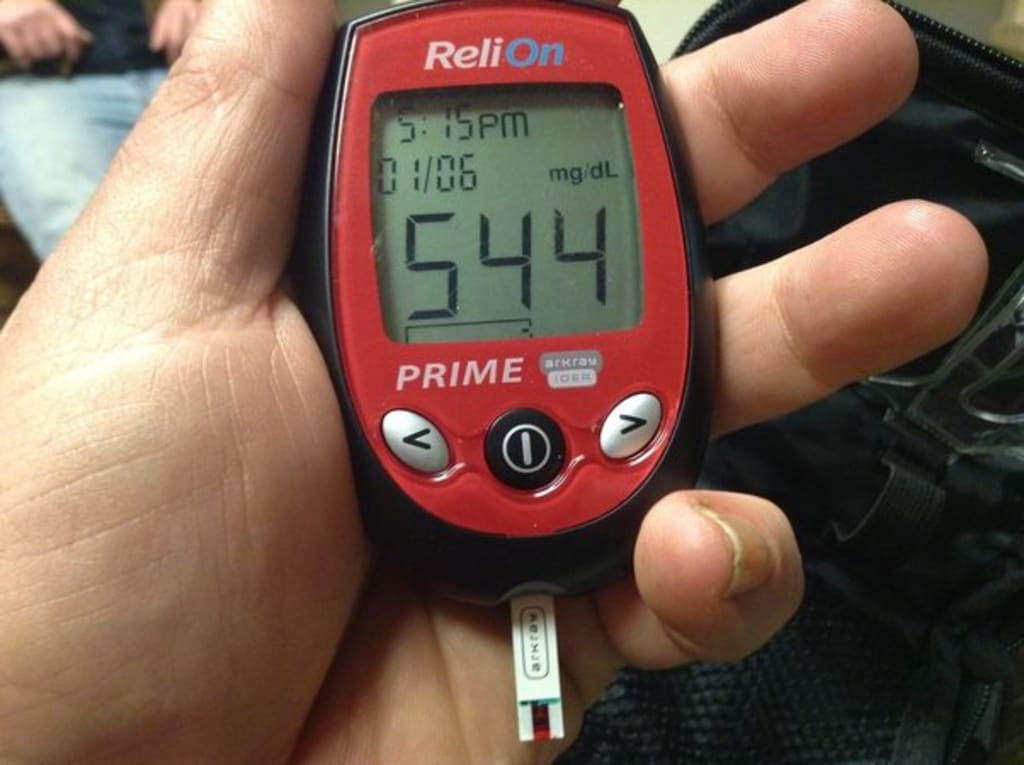Understanding Hypoglycemia: What Blood Sugar is Too Low?
The Importance of Recognizing and Managing Low Blood Sugar Levels

Hypoglycemia, also known as low blood sugar, is a condition that occurs when the glucose (sugar) level in the blood drops below normal levels. Blood sugar is a critical component of our body's energy supply and is essential for the proper functioning of our organs, muscles, and tissues. When blood sugar levels are too low, the body cannot function properly, which can lead to serious health problems.
In this article, we will explore what blood sugar is too low and the importance of recognizing and managing low blood sugar levels.
What is Blood Sugar?
Blood sugar, also known as blood glucose, is the primary source of energy for the body's cells. It is derived from the food we eat and is transported throughout the body by the bloodstream. Insulin, a hormone produced by the pancreas, helps to regulate blood sugar levels by allowing glucose to enter the cells, where it can be used for energy.
Normal blood sugar levels typically range between 70 and 130 milligrams per deciliter (mg/dL) before meals and less than 180 mg/dL after meals. However, these levels may vary depending on individual factors such as age, weight, activity level, and overall health.
What Causes Low Blood Sugar?
Low blood sugar can occur for a variety of reasons. The most common causes include:
Skipping or delaying meals: When you skip a meal or delay eating, your body may not have enough glucose to maintain normal blood sugar levels.
Excessive physical activity: Engaging in prolonged or intense physical activity can cause the body to use up its glucose supply, leading to low blood sugar.
Taking too much insulin: Injecting too much insulin or taking too high a dose of oral diabetes medication can cause blood sugar levels to drop below normal.
Drinking alcohol: Consuming alcohol can interfere with the liver's ability to produce glucose, leading to low blood sugar.
Certain medications: Some medications, such as beta-blockers, can interfere with the body's ability to produce glucose, leading to low blood sugar.
Symptoms of Low Blood Sugar
The symptoms of low blood sugar can vary depending on the severity of the condition. Mild symptoms may include:
Sweating
Shaking
Hunger
Irritability
Dizziness
Headache
Blurred vision
Weakness
As blood sugar levels continue to drop, more severe symptoms may develop, such as:
Confusion
Seizures
Loss of consciousness
What Blood Sugar is Too Low?
The threshold for what blood sugar is too low varies depending on individual factors such as age, overall health, and diabetes management plan. Generally, blood sugar levels below 70 mg/dL are considered too low and require immediate attention.
Individuals with diabetes are at a higher risk of developing hypoglycemia and should regularly monitor their blood sugar levels. It is important to follow a diabetes management plan that includes regular meals, monitoring blood sugar levels, and adjusting medication doses as needed.
Managing Low Blood Sugar
If you experience symptoms of low blood sugar, it is important to act quickly to prevent the condition from becoming severe. Here are some tips for managing low blood sugar:
Eat or drink something containing sugar: Consuming a small amount of sugar, such as a piece of candy or a glucose tablet, can help to raise blood sugar levels quickly.
Test your blood sugar: Use a blood glucose meter to check your blood sugar levels and determine if they have returned to a normal range.
Wait 15 minutes: After consuming sugar, wait at least 15 minutes





Comments
There are no comments for this story
Be the first to respond and start the conversation.